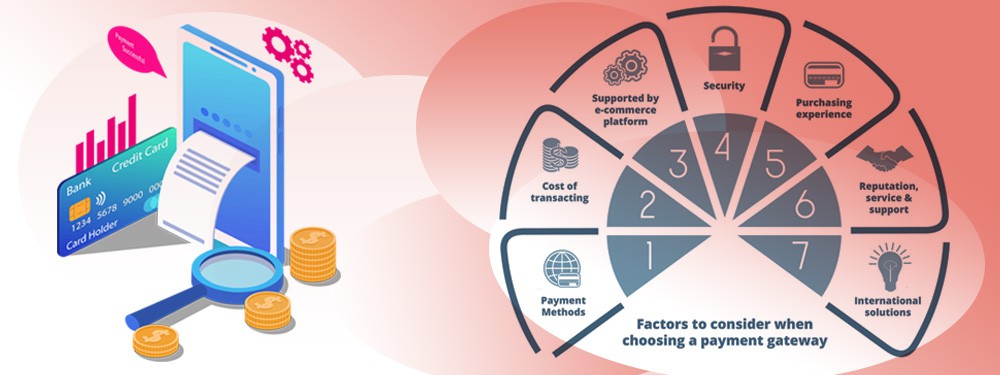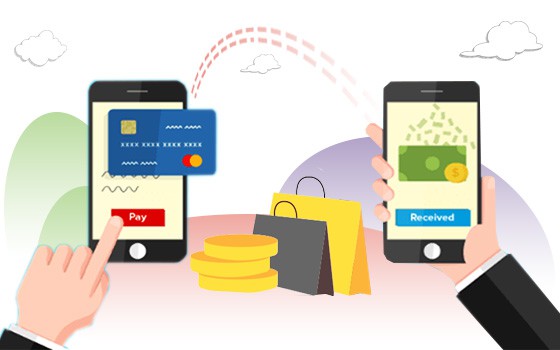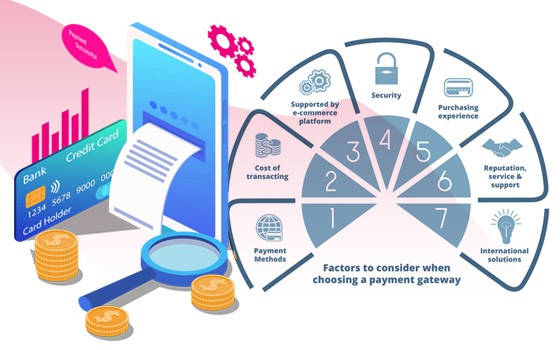Choosing a payment gateway for your business
Choosing the right payment gateway for your business is an important decision. If you choose a gateway that doesn’t fit your business model, you might end up losing a lot of money and customers as well. Here are the most important factors.
Cost
The most important thing you need to consider while choosing a payment gateway is the total cost that you’ll incur. The cost involved in using payment gateway comes in three types: set-up fee, monthly fee, and transaction fee.
To find the most cost-effective choice for your business, both the volume and value of your transactions need to be considered. Most payment gateways have a competitive transaction fee rate of 2.9% + 30ç. This might work well for businesses when the value of their transactions is often not that high; however, if they are, the transaction fees can increase your expenses significantly. If your business deals primarily in high-value transactions make sure you look for payment gateways that offer their services for a set monthly fee and a low transaction fee.
Types of cards allowed
The most commonly used credit cards are Visa, MasterCard, and Amex. All of these card types are accepted by most payment gateways. However, if your customers usually pay you using other card types, such as a debit card or a Diners Club card, you need to make sure that your payment gateways support that card.
Digital assets, including bitcoin, could save small businesses substantial transaction fees and provide an added layer of security to their payment processing.
Holding time
Even though payments are usually approved almost immediately, the money is held for a few days before it is settled to your account. This is to allow for the handling of refunds and charge-backs. These holding periods can vary from 1-7 days depending on the payment service provider. You can choose to wait or get paid immediately, depending on your cash flow.
Multiple currency support
If you do business internationally, you need to make sure that your payment gateway can handle payments in different currencies and from different countries. It is of utmost importance to let your customers pay in their currency. You’ll also want to, check for fees involved in foreign currency transactions.
Recurring billing
If you run a subscription-based business, you need to pick a payment gateway that’s equipped to handle all the moving parts that go into recurring billing. Any provider you choose needs to be able to save and store customer details for future transactions, automatically charge credit cards on preset subscription schedules, and offer retry options for failed transactions. Otherwise, you may have to do all this additional work manually.
Hosted vs. non-hosted
A payment gateway can either be hosted off-site (the customer is taken to the payment processor’s website for them to enter their details) or non-hosted (the customer will be able to enter the details without leaving your website).
Each of these different modes of hosting payment gateways has its own pros and cons. One benefit of using hosted gateways is that they reduce the risk of storing sensitive information on your own site. Although this is a huge advantage, the downside is that redirecting your customers to another site adds another step to the payment process, making it longer than usual. If customers go through this lengthy process and the transaction fails due to a glitch or other error, they may become frustrated and not try again. For this reason, businesses with high transaction values prefer to have non-hosted payment gateways integrated with their stores.
Security
When it comes to receiving payments online, because you’re storing sensitive financial information, the security of your payment gateway should be a high priority. Keep in mind that different payment gateways adhere to different security standards. Make sure that the gateway you choose is level-1 PCI DSS compliant. Some gateways come with fraud detection and other such screening tools to protect your business from fraudulent transactions.
Mobile payment support
A majority of customers shop using mobile phones and tablets now, so it’s important to select a gateway that can support payments made from mobile devices as well. This will give your customers the flexibility to pay you regardless of what device they use.
Limits
There are some payment gateways that set an upper limit on the transaction amount that you can process per month. This might not be a problem for small businesses. However, if yours is a business that deals with high value goods or processes a large number of transactions, you need to be aware of any such limits, as you may lose potential customers.
Integration with other systems
Finally, it’s worth considering if your payment gateway can connect with your invoicing or accounting software so that when an online payment takes place, the corresponding invoice will update automatically in your bookkeeping system. This will save you a lot of time and effort because you won’t have to keep track of payments and then manually update that payment information in your accounting system as it comes in.
u-bsol already integrated 5 major payment gateways (Paytm, Paypal, Stripe, PayuMoney, Razorpay) as its ready to use. You just need to choose any of them and make deal with provider to start receive the payments.





